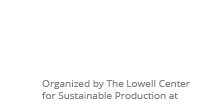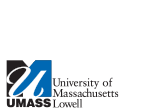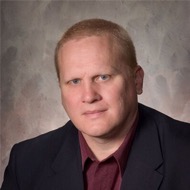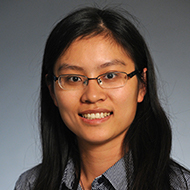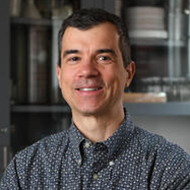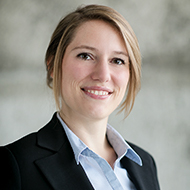2021 A4 Symposium - Speakers
Monday, October 25
A4 Short Course – Tour de Force of Tools from the US Environmental Protection Agency to Support Assessments of Alternatives
 |
PRESENTER TODD MARTIN RESEARCH CHEMIST Dr. Todd M. Martin has been with the Office of Research and Development at the US EPA since 2002. A chemical engineer by training, his research has focused on computational toxicology and alternatives assessment. He is the lead developer of T.E.S.T. (Toxicity Estimation Software Tool). T.E.S.T. estimates toxicity values and physical properties from molecular structure. He is also the lead developer for the Hazard Comparison Dashboard (HCD). HCD is a web tool that allows users to easily compare the hazards of chemical alternatives using chemical lists, experimental toxicity data, and predicted toxicity values.
|
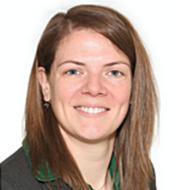 |
PRESENTER KATHERINE PHILLIPS PHYSICAL SCIENTIST Dr. Katherine Phillips has worked with the US EPA’s Office of Research and Development since 2016. While her formal training was chemical engineering, she now focuses on gathering data related to human exposures to chemicals and developing models which help fill in gaps where those data are missing. In collaboration with EPA scientists, she has developed models which predict a chemical’s functional use in consumer products and databases containing publicly available information of uses and weight fractions of ingredients in consumer products which are used to obtain high-throughput exposure estimates.
|
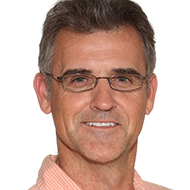 |
PRESENTER ANTONY WILLIAMS COMPUTATIONAL CHEMIST Dr. Antony J. Williams joined the Center for Computational Toxicology and Exposure in the Office of Research and Development at the US EPA in May 2015. He is a cheminformatician focused on the delivery of the center's data to the scientific community via the CompTox Chemicals Dashboard (https://comptox.epa.gov/dashboard). His interests include the aggregation and curation of chemical data, development of models to support physicochemical property prediction and development of software approaches to support non-targeted analysis. He has over two decades of experience in cheminformatics and chemical information management with a focus on internet-based projects to deliver free-access community-based chemistry websites. He was one of the co-founders of ChemSpider, one of the worlds most popular chemistry websites that he started as a hobby project and is now hosted by the Royal Society of Chemistry and has tens of thousands of users every day. He is widely published with >300 peer-reviewed articles, book chapters and books. He is known as the ChemConnector on the social media networks and spends some of his spare time teaching scientists how to use these tools. |
Tuesday, October 26
Symposium Opening Remarks
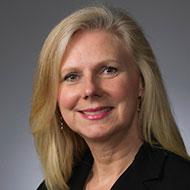 |
PRESENTER PAMELA SPENCER PRESIDENT SENIOR DIRECTOR OF REGULATORY AFFAIRS & PRODUCT STEWARDSHIP Dr. Pamela Spencer is the Senior Director of Regulatory Affairs & Product Stewardship at ANGUS Chemical, in Chicago, IL. Prior to this role, she worked for the Dow Chemical Company for 30 years, retiring as the Scientific Director of Dow’s Toxicology Environmental Research & Consulting function. She received her doctorate from the Department of Toxicology, School of Public Health, University of Michigan. She has extensive experience in regulatory toxicity testing and research to define human health risks, with numerous publications to date in the areas of neurotoxicology, genetic toxicology, carcinogenicity and green chemistry. Dr. Spencer is involved in several scientific service activities that include: appointment to National Institute of Environmental Health Sciences (NIEHS), Scientific Advisory Committee on Alternative Toxicological Methods, appointment to the Board of Trustees for the Health and Environmental Sciences Institute, and Vice President Society of Toxicology In Vitro and Alternative Methods Specialty section. |
Session 1 (Keynote) – How Do We Get to Safer and Sustainable: Insight from Risk Assessment, Safer Design, and Green Chemistry Leadership
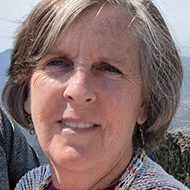 |
KEYNOTE INTRODUCTIONS LAURA PLUNKETT PRESIDENT Dr. Laura Plunkett (PhD, DABT) is the co-founder of BioPolicy Solutions LLC and holds an adjunct professor position at Baylor University (Department of Environmental Sciences). Trained as a pharmacologist, she has served as a consultant for over 30 years to a variety of clients in areas of pharmacology, toxicology, risk assessment and regulatory strategy. With a focus on products regulated by the U.S. Food and Drug Administration (FDA), she has had the pleasure of assisting clients with obtaining patent protection (she is a USPTO Registered Patent Agent), specializing in products used in medical applications (drugs, devices, dietary supplements) and developing worldwide regulatory strategies for initial commercialization of their inventions. She has provided regulatory support for companies engaged in manufacturing and marketing of products and ingredients for products that are regulated by the FDA, the U.S. Environmental Protection Agency and other regulatory bodies in the U.S. and worldwide. She also serves as a testifying expert in litigation cases.
|
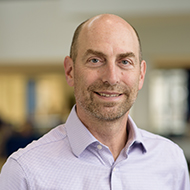 |
MODERATOR JOEL TICKNER EXECUTIVE DIRECTOR PROFESSOR OF PUBLIC HEALTH Dr. Joel Tickner is a Professor of Public Health at the University of Massachusetts Lowell. He is founder and Executive Director of the Green Chemistry & Commerce Council (GC3); Executive Director of the Association for the Advancement of Alternatives Assessment (A4), a new professional association; and Co-Director of the Massachusetts Toxics Use Reduction Institute (TURI). He is a leading expert on application of green chemistry and alternatives assessment in science and policy. He has served on a number of EPA and National Academy of Sciences advisory committees and advises government agencies around the world. He holds a Masters of Science degree in Environmental Studies from the University of Montana and a Doctor of Science Degree from the Department of Work Environment at University of Massachusetts Lowell.
|
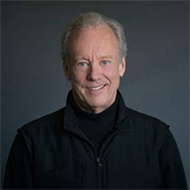 |
KEYNOTE SPEAKER WILLIAM MCDONOUGH MANAGER AND CO-FOUNDER Born in Japan, February 20, 1951, William McDonough was first introduced to closed loop material cycles while growing up in Japan and Hong Kong. This experience had a tremendous influence on his life. McDonough’s interests and influence range widely, and he works at scales from the global to the molecular. He is recognized globally as a leader in sustainable development. His vision for a future of abundance for all is helping companies and communities think differently. Together they are changing the world.
|
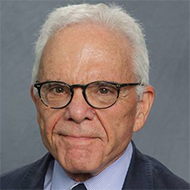 |
KEYNOTE SPEAKER JOSEPH RODRICKS FOUNDING PRINCIPAL Dr. Joseph Rodricks is a founding Principal of ENVIRON (now Ramboll), and an internationally recognized expert in toxicology and risk analysis. He has consulted for hundreds of manufacturers, new product developers, and government agencies in the evaluation of health risks associated with human exposure to chemical substances of all types. He has served on the National Research Council’s Board on Environmental Studies and Toxicology (NRC BEST), and on more than 40 boards and committees of the National Academy of Sciences and the Institute of Medicine, including the committees that produced the seminal works Risk Assessment in the Federal Government: Managing the Process (1983), and Science and Decisions–Advancing Risk Assessment (2009). He has more than 150 scientific publications to his name, including the widely cited text, Calculated Risks, now in its second edition.
|
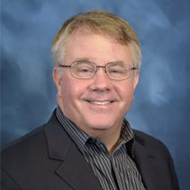 |
KEYNOTE SPEAKER JOHN WARNER DISTINGUISHED RESEARCH FELLOW John is a distinguished research fellow at the Zymergen Corporation where he is helping to design and create commercial technologies inspired from nature consistent with the principles of green chemistry. With over 300 patents, he has invented solutions for dozens of multinational corporations. His inventions have also served as the basis for several new companies. Examples include: Collaborative Medicinal Development (ALS therapy), Hairprint (hair color restoration), Collaborative Aggregates (asphalt warm mix rejuvenators), Ambient Photonics (lowlight indoor photovoltaic devices for IoT and BIPV). He is one of the cofounders of the field of green chemistry, coauthoring the defining text and articulating the 12 principles of green chemistry with Paul Anastas. John has over 100 publications providing foundational work in the fields of noncovalent derivatization, polymer photochemistry, metal oxide semiconductors and synthetic organic chemistry. John has received prestigious awards as an academic (PAESMEM – President G. W. Bush & NSF, 2004), industrial chemist (Perkin Medal – Society of Chemical Industry, 2014), inventor (Lemelson Ambassadorship – Lemelson Foundation & AAAS) and for governmental chemicals policy (Reinventing Government National Performance Review – Vice President A. Gore & EPA, 1997). He received the American Institute of Chemistry’s Northeast Division’s Distinguished Chemist of the Year for 2002 and the Council of Science Society President’s 2008 Leadership citation. Warner was named by ICI Services as one of the most influential people impacting the global chemical industries. In 2011 he was elected a Fellow of the American Chemical Society and named one of “25 Visionaries Changing the World” by Utne Reader. He serves as Distinguished Professor of Green Chemistry at Monash University in Australia. He serves as the Global Chair for the Center for Sustainable and Circular Technologies at the University of Bath. In 2017 the German Ministry of Economic Affairs and The Technical University of Berlin announced the naming of “The John Warner Center for Green Chemistry Start-Ups” in his honor. John received his BS in Chemistry from UMASS Boston, and his PhD in Chemistry from Princeton University. After working at the Polaroid Corporation for nearly a decade, he then served as tenured full professor at UMASS Boston and Lowell (Chemistry and Plastics Engineering). In 2007 he founded the Warner Babcock Institute for Green Chemistry, with Jim Babcock (a research organization developing green chemistry technologies), and Beyond Benign with Amy Cannon (a non-profit dedicated to sustainability and green chemistry education). He now advises several international organizations and in 2020 began working with the Zymergen Corporation.
|
Tuesday, October 26
Session 2 – Safe and Sustainable Alternatives
|
|
MODERATOR ROBERT SKOGLUND HEAD OF PRODUCT SAFETY & REGULATORY AFFAIRS Dr. Robert Skoglund is the Head of Product Safety and Regulatory Affairs for Covestro LLC, a world-leading manufacturer of high-tech polymer materials where he is responsible for Hazard Communication. In addition he holds an adjunct faculty appointment in the Schools of Public Health at Indiana University and the University of Minnesota. Dr. Skoglund received his MS in toxicology and PhD in environmental chemistry from the University of Minnesota and is working on an MBA in sustainable business at Marylhurst University. In addition he is certified in toxicology by the American Board of Toxicology and industrial hygiene by the American Board of Industrial Hygiene.
|
|
|
PRESENTER GEETESH DEVINENI RESEARCH ASSISTANT Geetesh Devineni is a 2nd year PhD student at the George Washington University. He currently works in Dr. Jakub Kostal’s lab using in silico techniques to study the toxicology behind pesticide design as well as polymer kinetics and thermodynamics. Geetesh earned his BA from the University of Virginia in 2016 and went on to work as a contractor at the EPA, where he supported the Biological and Economic Analysis (BEAD) division under the Document and Data Management Support (DDMS) contract.
|
|
|
PRESENTER LEI HUANG RESEARCH AREA SPECIALIST My educational background includes a bachelor’s degree in Biotechnology from Peking University and a PhD in Environmental Health Sciences from the University of Michigan. My research interests include exposure modeling, human exposure and health risk assessment, life cycle assessment and chemical alternatives assessment. My current research mainly addresses a range of topics related to the emissions and impacts of chemicals in the near-field environment that include: (1) development of mathematical models to assess the chemical emissions from the use of consumer products and the resulting human exposures; (2) high-throughput screening of exposure potentials and human health risks for chemicals in consumer products, identification of high-concern chemicals/products, and development of databases; and (3) development of methodologies for life cycle assessments and chemical alternatives assessments to integrate near-field chemical exposure and impacts. My research also addresses far-field activities and emissions to identify sustainable solutions, such as environmental dredging and nutrient recycling in agricultural production. Other research experience and interests include multimedia modeling of chemical transport and fate, source apportionment, environmental monitoring, and human risk assessments.
|
|
|
PRESENTER GREG MOROSE RESEARCH MANAGER Greg Morose is a Research Manager for the Toxics Use Reduction Institute and a Research Professor for the Zuckerberg College of Health Sciences at the University of Massachusetts Lowell. Greg leads research efforts to identify and evaluate solutions to the use of toxic chemicals used in various industries including heavy metals and solvents. Greg teaches a graduate engineering course that covers toxics use reduction and life cycle assessment concepts. Greg has a Bachelor's degree in Mechanical Engineering, a Master's of Science degree in Environmental Studies, a Master's of Business Administration degree, and a Doctoral degree in Cleaner Production and Pollution Prevention. Greg is also an ASQ Certified Six Sigma Black Belt.
|
|
|
PRESENTER STEFANIE WIECK ENVIRONMENTAL ENGINEER Stefanie Wieck is working in the Biocides Unit of the German Environment Agency since 2009. She is an environmental engineer by training and holds a PhD in environmental chemistry. Her special interest is identifying paths towards a sustainable use of biocides, including chemical and non-chemical alternatives. |
Wednesday, October 27
Session 3 – Alternatives Assessment and Informed Substitution in Policy Part I: Lessons Learned and Insights for Future Policy Provisions
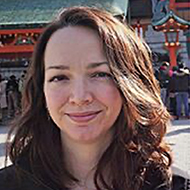 |
MODERATOR CATHY RUDISILL LEAD CHEMIST AND SAFER CHEMICALS SPECIALIST Cathy Rudisill is a Lead Chemist and Safer Chemicals Specialist in the Environmental Health Analysis group at SRC, Inc. where she manages a multi-disciplinary team of chemists and toxicologists. Her primary focus is overseeing SRC's technical contract support to the U.S. EPA's Safer Choice program and has been active in the alternatives assessment community for 10 years. Ms. Rudisill has more than 17 years of experience in developing chemical hazard assessments and alternatives assessments for government and commercial customers. She holds a M.S. in Environmental Sciences and Policy from Johns Hopkins University and a B.S. in Chemistry from Shippensburg University.
|
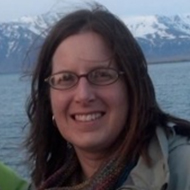 |
PRESENTER HOLLY DAVIES SENIOR TOXICOLOGIST Holly Davies is a senior toxicologist at the Washington State Department of Health. She previously worked for King Co and the Dept. of Ecology. Her work focuses on evaluating uses of toxic chemicals, including chemicals of emerging concern and persistent, bioaccumulative, and toxic chemicals (PBTs), and identifying actions needed to protect human health and the environment with an emphasis on prevention and safer alternatives. She is a member of EPA’s Scientific Advisory Committee on Chemicals, which provides advice under the Toxic Substances Control Act (TSCA) and the Association for the Advancement of Alternatives Assessment (A4). Before joining the state her experience was in academic teaching and research in genetics and developmental biology. Holly received a B.S. in Biology from Cornell University in Ithaca, NY and a Ph.D. in Genetics from the University of Washington in Seattle, WA.
|
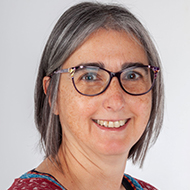 |
PRESENTER DOLORES ROMANO DEPUTY POLICY MANAGER FOR CHEMICALS Dolores Romano is Deputy Policy Manager for Chemicals at the European Environmental Bureau, following closely REACH and other chemical regulations and policy development and implementation in the EU. She is an agriculture engineer (Polytechnic University of Madrid) and holds a master’s degree on occupational health. She has worked extensively on chemicals and waste policies for several environmental NGOs (Greenpeace, Fundación Ecología y Desarrollo and Ecologistas en Acción) and for the trade union institute ISTAS in Spain. Dolores has over a hundred publications related to chemicals policies and has planned and developed substitution and training programs for workers on reprotoxicants, carcinogens and endocrine dicrupters. She has also developed several tools to support substitution such as Risctox and Subsport.
|
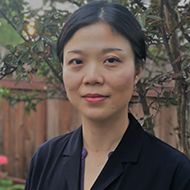 |
PRESENTER XIAOYING ZHOU SENIOR HAZARDOUS SUBSTANCES ENGINEER Dr. Xiaoying Zhou is a Senior Hazardous Substances Engineer at Safer Consumer Products (SCP) Program in the California Department of Toxic Substances Control (DTSC). As project manager and technical lead, Dr. Zhou has been worked on green materials selection, hazardous waste management, pollution prevention, toxics in products, green chemistry and alternatives assessment policies and implementation for more than ten years. She holds a B.S. from the University of Science and Technology Beijing and a Ph.D. in Materials Science and Engineering from the University of California, Davis.
|
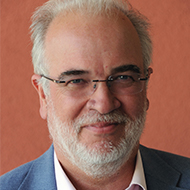 |
ADDITIONAL DISCUSSANT PAUL ASHFORD MANAGING DIRECTOR Paul received a BSc (Hons) in chemistry from the University of Bristol (UK) in 1979 before spending 15 years with BP Chemicals in a variety of technical, technology transfer and commercial roles. This combination of technical and commercial experience allowed Paul to set up his own consultancy firm, Caleb, in 1994 to pursue his interests in the environmental regulatory field and its growing impact on business strategy. He continues to be an active opinion-former in international policy development based on his strong track record within the Montreal Protocol. This interest also extends to the chemical regulatory field where Caleb became a lead consultancy on the implementation of REACH within the European Union. In order to broaden its global base, Caleb reached agreement with sustainability specialist, Anthesis Consulting Group, to combine forces in February 2014. Paul is now responsible for the global development of the Sustainable Chemistry Practice within Anthesis, where he continues to provide advice to both regulators and companies on comparative hazard and risk assessment in order to assess alternative options and, where necessary, develop substitution strategies. He is particularly engaged with the hazard assessment of polymers and the development of policy approaches to registration of polymers which have now been incorporated under the Chemical Strategy for Sustainability (CSS) umbrella. The CSS heralds a likely change in European policy which will promote the importance of Alternative Assessment throughout supply-chains and Paul’s experience within the Montreal Protocol and elsewhere is again coming to the fore in those debates.
|
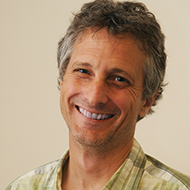 |
ADDITIONAL DISCUSSANT MARK ROSSI EXECUTIVE DIRECTOR He is the co-creator of GreenScreen® for Safer Chemicals, a globally-recognized chemical hazard assessment method used by governments and businesses to identify safer alternatives to toxic chemicals. Mark led CPA’s launch of GreenScreen Certified™, a certification program for products that meet rigorous GreenScreen criteria. Mark is the co-founder of the Chemical Footprint Project (CFP), a first-of-its-kind initiative to quantitatively measure chemical footprints, and allow manufacturers and retailers to benchmark and communicate their progress in chemicals management performance and in reducing potentially hazardous chemicals relative to industry peers. He is the founder of BizNGO, a collaborative of businesses, NGOs, and governments that work together to create solutions for safer chemicals and sustainable materials. BizNGO products include the Principles for Chemical Ingredient Disclosure, Chemical Alternatives Assessment Protocol, Plastics Scorecard, and Alternatives to Methylene Chloride in Paint and Varnish Strippers. Mark led the integration of the Investor Environmental Health Network (IEHN) into CPA in 2018. IEHN is a collaborative of investors that promotes safer chemicals in corporations with the goals of enhancing the health of people and the planet, as well as shareholder value. He is the recipient of the US EPA’s Region 1 Environmental Merit Award and National Pollution Prevention Roundtable’s P2 Ambassador Award. His doctorate is in Environmental Policy from the Massachusetts Institute of Technology.
|
Wednesday, October 27
Session 4 – Alternatives Assessment and Informed Substitution in Policy Part II: Lessons Learned for More Effective Implementation
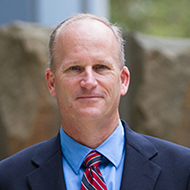 |
MODERATOR KARL PALMER SAFER CONSUMER PRODUCTS PROGRAM DEPUTY DIRECTOR Karl Palmer has been named Deputy Director for DTSC’s Safer Consumer Products Program. Prior to this position he managed the Safer Consumer Products Branch, where he was responsible for developing, implementing, and enforcing California’s Safer Consumer Products regulations. Karl has worked for DTSC for over 30 years in a wide array of management and technical positions, including managing programs in Pollution Prevention, Hazardous Waste Management, and Emergency Response. Karl received his Bachelor of Science in resource sciences from the University of California, Davis.
|
 |
PRESENTER PAUL ASHFORD MANAGING DIRECTOR Paul received a BSc (Hons) in chemistry from the University of Bristol (UK) in 1979 before spending 15 years with BP Chemicals in a variety of technical, technology transfer and commercial roles. This combination of technical and commercial experience allowed Paul to set up his own consultancy firm, Caleb, in 1994 to pursue his interests in the environmental regulatory field and its growing impact on business strategy. He continues to be an active opinion-former in international policy development based on his strong track record within the Montreal Protocol. This interest also extends to the chemical regulatory field where Caleb became a lead consultancy on the implementation of REACH within the European Union. In order to broaden its global base, Caleb reached agreement with sustainability specialist, Anthesis Consulting Group, to combine forces in February 2014. Paul is now responsible for the global development of the Sustainable Chemistry Practice within Anthesis, where he continues to provide advice to both regulators and companies on comparative hazard and risk assessment in order to assess alternative options and, where necessary, develop substitution strategies. He is particularly engaged with the hazard assessment of polymers and the development of policy approaches to registration of polymers which have now been incorporated under the Chemical Strategy for Sustainability (CSS) umbrella. The CSS heralds a likely change in European policy which will promote the importance of Alternative Assessment throughout supply-chains and Paul’s experience within the Montreal Protocol and elsewhere is again coming to the fore in those debates.
|
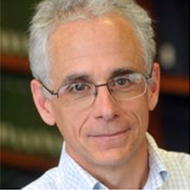 |
PRESENTER TIMOTHY MALLOY PROFESSOR OF LAW Tim is a Professor of Law at the University of California Los Angeles. He also serves as the Faculty Director of the interdisciplinary UCLA Sustainable Technology and Policy Program. He joined the UCLA faculty in 1998, after spending a combined 11 years in practice at private firms and at the United States Environmental Protection Agency, Region III. Professor Malloy’s research interests focus on environmental, chemical and nanotechnology policy, regulatory policy, and organizational theory, with particular emphasis on the relationship between regulatory design and implementation and the structure of business organizations. Tim serves on the Executive Council of the Association for the Advancement of Alternatives Assessment.
|
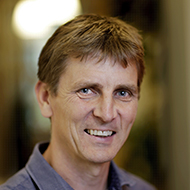 |
PRESENTER DANIEL SLUNGE RESEARCHER AND POLICY ENGAGEMENT DIRECTOR Daniel Slunge, PhD, is a Researcher and Policy Engagement Director at the Environment for Development Initiative and the FRAM Centre for Future chemical Risk Assessment and Management at the University of Gothenburg, Sweden. His research focuses on the analysis of policy instruments for hazardous chemicals, economic valuation, risk perception and how different assessment methods can contribute to decisions for a more sustainable development. Daniel teaches at doctoral level on research-policy interaction and risk analysis, and at masters level on sustainability assessment and environmental economic policy instruments. He combines research and teaching with active participation in government investigations and collaborations with national and international organizations such as the European Chemicals Agency, the World Bank and UNEP. |
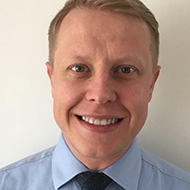 |
PRESENTER MATEUSZ WILK ECONOMIST Mateusz Wilk is working as an Economist in European Chemicals Agency since May 2021, which he joined from the UK, where he worked for the Government Economic Service. Prior to that Wilk worked in the private sector economic consulting for engineering companies. Mateusz works in the Risk Management unit on, among other things, Applications for Authorisation, cost and benefit analysis and impact assessment. He is interested in behavioural aspects of regulatory decisions in the chemicals industry and is keen to explore how using incentives on companies leads to better outcomes for human health and the environment. He hold Masters in Economics from University of Sheffield, UK.
|
Thursday, October 28
Session 5 – Safer and More Sustainable Alternatives: Tools and Strategies being Used by the Business Community
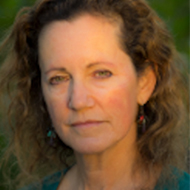 |
MODERATOR LAUREN HEINE DIRECTOR OF SCIENCE & DATA INTEGRITY Dr. Lauren Heine applies green chemistry, green engineering, alternatives assessment and multi-stakeholder collaboration to develop tools that result in safer and more sustainable chemical products and processes. Her work with ChemForward builds on prior experience developing GreenScreen® for Safer Chemicals, a pioneering method for chemical hazard assessment to enable informed substitution; and CleanGredients™, a web-based information platform for identifying greener chemicals for use in cleaning products to scale access to information needed to develop materials and products that are safe and circular. Lauren worked closely with the USEPA Safer Choice Program (formerly Design for the Environment (DfE)) to facilitate development of ingredient and hazard criteria for the Safer Choice Program and served on Steering and Technical Committees for the DfE Alternatives Assessment Partnerships. For the OECD, Lauren drafted Policy Principles for Sustainable Materials Management and Considerations and Criteria for Sustainable Plastics from a Chemicals Perspective. She served on the California Green Ribbon Science Panel and co-chairs the Apple Green Chemistry Advisory Board, tasked with helping to integrate green chemistry into Apple’s products and supply chain. Lauren advised the technical development of the Interstate Chemicals Clearinghouse Alternatives Assessment Guide and the WA Alternatives Assessment Guide. She began her career as a Fellow with the American Association for the Advancement of Science (AAAS) in the Green Chemistry Program at the US Environmental Protection Agency. Lauren earned her doctorate in Civil and Environmental Engineering from Duke University and taught chemistry labs at Bowdoin College.
|
 |
PRESENTER SCOTT ECHOLS SENIOR ROADMAP TO ZERO PROGRAMME DIRECTOR Scott is ZDHC Senior Roadmap to Zero Programme Director coordinating all focus areas and driving programme delivery. He is a point of contact and resource for ZDHC members, potential members and other major industry stakeholders in the Americas. Scott is an expert in sustainable materials and processes for the apparel and footwear industries. He has 30 years of experience in environmental chemistry and over 17 years of experience in textile and footwear product chemistry issues. Scott was part of the Nike Materials Science Innovation group and was the Environmental Manager for C&A Europe. Scott currently serves on the steering committee for the Outdoor Industry Association Chemicals Management Working Group (OIA CMWG) and is on the North Carolina State Textile Engineering, Chemistry and Science (TECS) Scientific Advisory Board (SAB). Scott is based in Portland, Oregon and holds a B.S and M.S degrees in Chemistry.
|
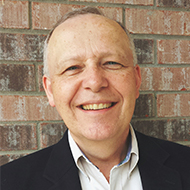 |
PRESENTER PATRICK HARMON INDUSTRY MANAGER - INDUSTRIAL PETROCHEMICALS Patrick Harmon is originally from Tennessee. He has a B.S. in Chemistry from Georgia Tech and a Ph.D. in organic chemistry from Vanderbilt University. He began his career with BASF in 1985 and has worked in various positions in research, marketing, and manufacturing and has participated in two extended assignments at the BASF headquarters site in Ludwigshafen, Germany. He currently is Industry Manager for Industrial Petrochemicals. Patrick is responsible for regulatory affairs and advocacy as well as new business development and sustainability. This work includes his activities with various trade organizations including the Resilient Floor Covering Institute. His has a particularly interest in alternatives assessment methodologies and green chemistry. Patrick lives with his family in the Houston, Texas, area.
|
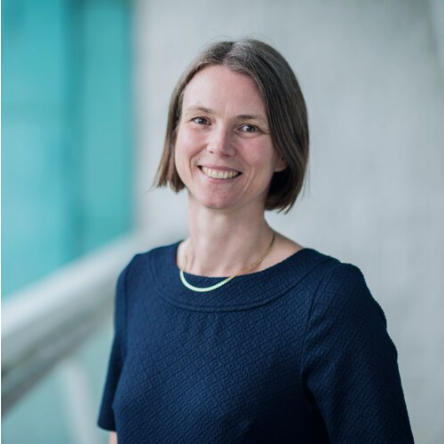 |
PRESENTER SANDRA MEIJER DIRECTOR, PRODUCT STEWARDSHIP Dr Sandra Meijer (PhD, Environmental Chemistry) is a recognised expert on chemicals management and product stewardship. Dr. Meijer developed the Group’s highly regarded Yordas Hive suite of regulatory compliance tools for industry, as well as industry specific tools such as GRMS2 for the automotive industry. Sandra has extensive knowledge on how global chemicals regulations impact supply chains, with a particular expertise in the advanced manufacturing sector. She has delivered numerous training workshops for industry on topics such as REACH, Regulatory Inspections, Substances of Very High Concern, etc. and works closely with industry bodies such as ACEA and IAEG. Sandra believes passionately that product stewardship is about harnessing the power of data to move beyond simple compliance to build a more sustainable business.
|
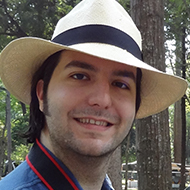 |
PRESENTER VICTOR ZANCHI PRODUCT SUSTAINABILITY MANAGER Victor Zanchi has a BSc in Chemistry from the University of York in the UK, where he is also currently studying for his PhD. He has been at Reckitt since 2008, where he has held a range of roles in Regulatory Systems and Processes, prior to joining the Corporate Affairs & Sustainability team in 2017. In his role in Product Sustainability, he was responsible for Reckitt’s first years of submissions to the Chemical Footprint Project, is an advocate for data-driven tools for Green & Sustainable Chemistry in product development, and supports R&D teams in the Health business in understanding and improving the footprint of their ingredients.
|
Thursday, October 28
Session 6 – Future Needs of Alternatives Assessments and the A4
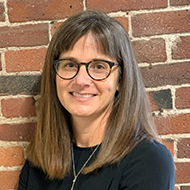 |
MODERATOR MOLLY JACOBS SENIOR RESEARCH ASSOCIATE Molly Jacobs is a Senior Research Associate at the Lowell Center for Sustainable Production at the University of Massachusetts Lowell. Since 2013, she has managed the Lowell Center’s extensive alternatives assessment and informed substitution work. This has included: supporting governments in the US and internationally to institute programmatic and policy structures that advance informed substitution efforts; co-authoring state of the art reviews and helping to set research and practice agendas for the field of alternatives assessment; and developing capacity building resources and materials. Molly helped to form the Association for the Advancement of Alternatives Assessment (A4) in 2018 and currently works on its Program Committee.
|
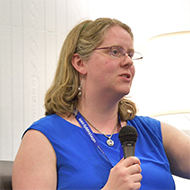 |
PRESENTER AMELIA NESTLER SENIOR ENVIRONMENTALIST SCIENTIST Dr. Amelia Nestler brings to Northwest Green Chemistry her background in biochemistry research, teaching, event management, and alternatives assessment. Amelia serves NGC’s mission to enhance human and environmental health via green chemistry and engineering by leading NGC’s webinar series for green technology entrepreneurs, performing research on diverse green chemistry and engineering subjects, and contributing to project and program development and the operational management of the organization. Recently, Amelia published Promising Practices for Alternatives Assessment: Lessons from a Case Study of Copper-free Antifouling Coatings with Dr. Lauren Heine in the Integrated Environmental Assessment and Management journal. Amelia led research and preparation of NGC's Washington State Antifouling Boat Paint Alternatives Assessment report, Alternatives to Five Phthalates of Concern to Puget Sound, and the OR DEQ Roadmap: Evaluating Alternatives to Food Packaging Materials Containing Per- or Poly-fluorinated Substances (PFASs). She also led NGC's facilitation of the Emerald Corridor Green Chemistry & Engineering Roadmap (2018-2023): Goals & Recommendations for Collective Impact. Previously, Amelia supported GreenScreen for Safer Chemicals at Clean Production Action by presenting at workshops in the green building sector and developing materials for online training courses. Amelia earned her doctorate in Biochemistry at the University of Wisconsin-Madison and her B.A. in Biochemistry at Lewis & Clark College.
|
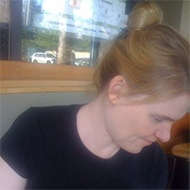 |
PRESENTER ALEXANDRA MAERTENS RESEARCH ASSOCIATE Research Associate and head of the Read Across and Green Toxicology initiative at the Center for Alternatives to Animal Testing at the John’s Hopkins Bloomberg School of Public Health.
|
 |
PRESENTER VEENA SINGLA SENIOR SCIENTIST Veena Singla focuses on creating healthier indoor environments, including advancing safe and sustainable materials and chemicals in the built environment and every day products. She investigates how toxic chemicals and harmful environmental exposures threaten the health of vulnerable populations, including pregnant women, children and workers. Her research uses an interdisciplinary approach incorporating environmental health, exposure science, public health and policy expertise. Veena specializes in the communication of complex scientific information at the intersection of research and policy and has testified to the Consumer Product Safety Commission, the Alaska state legislature, and the San Francisco Board of Supervisors. She currently serves on the US EPA's Children's Health Protection Advisory Committee, the National Toxicology Program Board of Scientific Counselors, and the Board of Directors for Clean Production Action. Veena previously was the Associate Director of Science and Policy at the Program on Reproductive Health and the Environment at the University of California, San Francisco (UCSF). She completed a postdoctoral teaching fellowship at Stanford University and was an adjunct faculty member at the University of San Francisco. She holds a bachelor’s degree from the University of California, Berkeley, and a PhD in cell biology from UCSF.
|
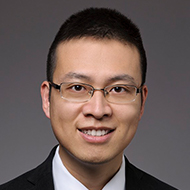 |
PRESENTER ZHANYUN WANG SENIOR SCIENTIST Dr. Zhanyun Wang is a senior researcher in the Ecological Systems Design Group at ETH Zürich, Switzerland. His research interests focus primarily on the lifecycles and risks of chemicals in the anthroposphere and natural environment, as well as novel and pragmatic approaches to fostering sound chemicals management, enabling circular economy, and strengthening science-policy interface. Dr. Wang is an author on more than 45 peer-reviewed articles. In addition, he has led or co-authored more than 10 technical reports published by OECD, UNEP, Nordic Council, Swiss Federal Office for the Environment, Norwegian Environment Agency and other governmental institutions.
|
Friday, October 29
Session 7 – A4 Poster Session
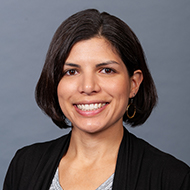 |
MODERATOR MONIKA ROY POSTDOCTORAL RESEARCH ASSOCIATE Monika Roy is currently a postdoctoral research associate at the Lowell Center for Sustainable Production at the University of Massachusetts Lowell, where she is working on several projects related to alternatives assessments. Previously, she completed a PhD with the Environmental Health Sciences department at the University of Massachusetts Amherst, where she studied developmental toxicology. Her doctoral research was funded through the National Institutes of Health (NIH) and focused on characterizing a prevalent environmental contaminant, PCB-11, where she used zebrafish to examine PCB-11’s interactions with an important liver enzyme called Cyp1a and examined PCB-11's effects on other metabolic-related endpoints. Monika has participated at meetings such as the Society of Toxicology (SOT) and the Society of Environmental Toxicology & Chemistry (SETAC), receiving several awards such as “Paper of the Year” and a “Women in Toxicology” award, and is excited to participate and meet attendees this year at the A4 meeting.
|
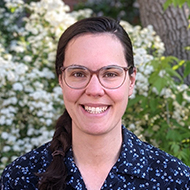 |
POSTER 1 AUDE BECHU PhD STUDENT Aude Bechu is a PhD student at McGill, working to evaluate the environmental and physiological transformations of nanomaterials in an interdisciplinary team. Prior to McGill, Aude was awarded a Fulbright to study life cycle assessment of biobased plastics in Switzerland. Building on this experience in life cycle assessment, she conducted an alternatives assessment on the nanomaterial she studied during her PhD. In her next steps, she is interested in pursuing sustainability assessment work with a focus on emerging materials.
|
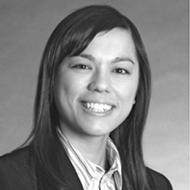 |
POSTER 2 MICHAELA CLEVER SCIENTIFIC ADVISOR Dr. Michaela Clever is a Scientific Advisor at BAuA – the German Federal Institute for Occupational Safety and Health. Her current work focuses on the assessment of occupational safety and health (OSH) under the REACH-regulation for chemicals in the EU. Thereby, she is involved in several REACH processes and in the development of risk management option analyses, considering national and EU management strategies for OSH. Michaela is responsible for further development and updates of the substitution support platform SUBSPORTplus hosted by BAuA. Together with other BAuA experts, she is active in discussing and promoting substitution i.a. by organization of information workshops on alternatives for, e.g. chromium (VI) or isothiazolinones.
|
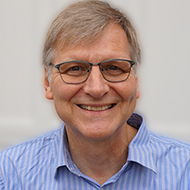 |
POSTER 3 DARYL DITZ SENIOR BUSINESS ADVISOR Daryl Ditz is a Senior Business Advisor at ChemSec, supporting the Corporate PFAS Movement, among other things. A chemical engineer with a PhD in public policy, he has tackled toxics at local, national, and global levels. Daryl is based in Washington, DC.
|
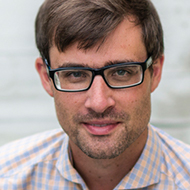 |
POSTER 3 JONATAN KLEIMARK SENIOR CHEMICALS AND BUSINESS ADVISOR Jonatan Kleimark is a Senior Chemicals and Business Advisor at ChemSec. With a PhD in organic chemistry and industry experience, Jonatan understands the needs and requirements of companies’ chemicals management. He also leads ChemSec’s Marketplace, a business-to-business platform for safer alternatives. Jonatan is based in Gothenburg, Sweden.
|
 |
POSTER 4 MOLLY JACOBS SENIOR RESEARCH ASSOCIATE Molly Jacobs is a Senior Research Associate at the Lowell Center for Sustainable Production at the University of Massachusetts Lowell. Molly has over 20 years of experience in public health research and practice to promote effective disease prevention solutions across a range of organizations. Since 2013, she has managed the Center's alternatives assessment and informed substitution work. This work has focused on: supporting governments in the US and internationally to institute programmatic and policy structures that advance informed substitution efforts, including the use of alternatives assessment; co-authoring state of the art reviews and helping to set research and practice agendas for the field of alternatives assessment; and developing capacity building resources and materials to support innovation and adoption of safer and sustainable chemicals. A particular research interest of Molly's is the emergence of engineered nanomaterials as a replacement for many functions being served by toxic chemicals of concern. Molly received her MPH with a concentration in environmental health and epidemiology from Boston University and her BA in biology and environmental studies from the University of California Santa Cruz. She currently is a member of the US state of California's Green Ribbon Science Panel and a founding Executive Council member of the Association for the Advancement of Alternatives Assessment (A4).
|
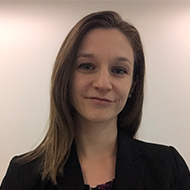 |
POSTER 5 JESSICA LEWER STUDENT Jessica received her B.S. in Chemistry from Clarkson University in 2017. From there, she was commissioned into the U.S. Air Force as a 2nd Lieutenant chemist where she began her first duty assignment at the Air Force Technical Application Center, Patrick AFB, Florida. For two years she led a chemical modeling and simulation team whose work included atmospheric chemistry, environmental fate, and hydrological transport modeling for DoD compounds of interest. In 2019 she joined George Washington University as a Chemistry Master’s candidate working in Dr. Jakub Kostal’s lab where she is focusing on in silico modeling to support the rational design of photodegradable pesticides with minimal ecotoxicity.
|
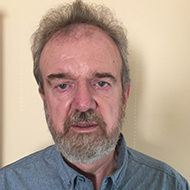 |
POSTER 6 HANS PLUGGE PRINCIPAL Hans Plugge is a Principal with Safer Chemical Analytics LLC. In his over 40 years of environmental consulting, he has worked on numerous chemicals’ toxicology reviews ranging from vinyl chloride to lead. EHS and Product Stewardship of chemical products, including cosmetics characterization were performed using a variety of data sources including the Chemical Awareness toolkit. Hans developed quantitative assessment/scoring methodologies for chemical hazard, risk, and industrial hygiene applications, including a Sustainability Index, all directly derived from raw (eco)toxicological data. SDS data was combined with toxicological data to provide workplace safety scoring reports. Integration of hazard and risk assessment methodologies with LCA was explored. Alternatives Assessment of direct chemical replacements, such as butanols, were performed. Data analyses were as simple as reviewing chemical analytical data, groundwater analysis, site characterization of brownfields and as complex as a detailed socioeconomic and risk analysis of regulation of chemicals toxic to reproduction. Over 125 databases for chemical’s (eco)toxicology and physical chemical data were maintained in a unified format. Uncertainties of (eco)toxicological data were described in the process of deriving data analytics-based uncertainty/assessment factors as well as Thresholds of Toxicological Concern. Hans holds Master’s degrees in Toxicology and Environmental Chemistry from, respectively, the Harvard University School of Public Health and the University of Guelph. He also has a B.Sc. in Chemistry from the University of Amsterdam. He has authored 5 publications and over 50 presentations in the last six years.
|
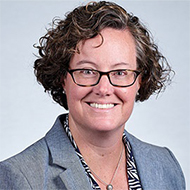 |
POSTER 7 JEN TANIR SENIOR SUSTAINABILITY SCIENTIST Dr. Jennifer Y. Tanir is a Senior Sustainability Scientist at ToxServices, where she manages projects for built environment clients, including Cradle to Cradle Certified™ Products Program certification and Living Product Challenge’s Transparent Material Health. Additionally, she manages ToxServices’s ToxFMD Screened Chemistry® Library, and coordinates supplier outreach and audits for the U.S. EPA Safer Choice Program. Jennifer joined ToxServices in 2019 with almost 20 years of green and sustainable chemistry-related experience working in industry, non-profit organizations, and consulting. Jennifer has a Ph.D. in polymer/organic chemistry from the University of North Carolina at Chapel Hill and B.S. in chemistry from the University of Richmond. She serves in leadership roles in several professional organizations, including the Association for the Advancement of Alternatives Assessment, Chemical Society of Washington, and National Capital Area Chapter of the Society of Toxicology.
|
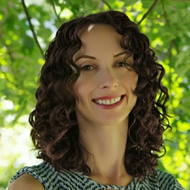 |
POSTER 8 ADELINA VOUTCHKOVA ASSOCIATE PROFESSOR, CHEMISTRY Dr. Voutchkova-Kostal is an Associate Professor in the Chemistry Department at the George Washington University in DC. Her research focuses on the development of catalytic methods that can help facilitate a circular economy of chemicals and materials through homogeneous and supported heterogeneous catalysis and designer solvents. She is co-Program Director of the MS program in Environmental and Green Chemistry, as well as Principal at Designing Out Toxicity LLC. In her latter role, she develops predictive toxicology tools for toxicological hazard evaluation and design of functional and safer commercial chemicals.
|
Friday, October 29
Symposium Closing Remarks
 |
PRESENTER PAMELA SPENCER PRESIDENT SENIOR DIRECTOR OF REGULATORY AFFAIRS & PRODUCT STEWARDSHIP Dr. Pamela Spencer is the Senior Director of Regulatory Affairs & Product Stewardship at ANGUS Chemical, in Chicago, IL. Prior to this role, she worked for the Dow Chemical Company for 30 years, retiring as the Scientific Director of Dow’s Toxicology Environmental Research & Consulting function. She received her doctorate from the Department of Toxicology, School of Public Health, University of Michigan. She has extensive experience in regulatory toxicity testing and research to define human health risks, with numerous publications to date in the areas of neurotoxicology, genetic toxicology, carcinogenicity and green chemistry. Dr. Spencer is involved in several scientific service activities that include: appointment to National Institute of Environmental Health Sciences (NIEHS), Scientific Advisory Committee on Alternative Toxicological Methods, appointment to the Board of Trustees for the Health and Environmental Sciences Institute, and Vice President Society of Toxicology In Vitro and Alternative Methods Specialty section. |
 |
PRESENTER JOEL TICKNER EXECUTIVE DIRECTOR PROFESSOR OF PUBLIC HEALTH Dr. Joel Tickner is a Professor of Public Health at the University of Massachusetts Lowell. He is founder and Executive Director of the Green Chemistry & Commerce Council (GC3); Executive Director of the Association for the Advancement of Alternatives Assessment (A4), a new professional association; and Co-Director of the Massachusetts Toxics Use Reduction Institute (TURI). He is a leading expert on application of green chemistry and alternatives assessment in science and policy. He has served on a number of EPA and National Academy of Sciences advisory committees and advises government agencies around the world. He holds a Masters of Science degree in Environmental Studies from the University of Montana and a Doctor of Science Degree from the Department of Work Environment at University of Massachusetts Lowell.
|

